“Thou Hast Done Wonderful Things”
Isaiah 22; 24–26; 28–30
LDS manual: here
Reading
We’re still in the first of the three Isaiahs. If you want a representative chunk of Isaiah, chapter 34 wouldn’t be a bad bit to read. It’s got the main themes:
- God is angry at the nations because they don’t love him enough
34:1 Come near, ye nations, to hear; and hearken, ye people: let the earth hear, and all that is therein; the world, and all things that come forth of it.
- He’s going to kill them.
34:2 For the indignation of the LORD is upon all nations, and his fury upon all their armies: he hath utterly destroyed them, he hath delivered them to the slaughter.
- There’s going to be lots of blood.
34:3 Their slain also shall be cast out, and their stink shall come up out of their carcases, and the mountains shall be melted with their blood.
34:4 And all the host of heaven shall be dissolved, and the heavens shall be rolled together as a scroll: and all their host shall fall down, as the leaf falleth off from the vine, and as a falling fig from the fig tree
34:5 For my sword shall be bathed in heaven: behold, it shall come down upon Idumea, and upon the people of my curse, to judgment.
34:6 The sword of the LORD is filled with blood, it is made fat with fatness, and with the blood of lambs and goats, with the fat of the kidneys of rams: for the LORD hath a sacrifice in Bozrah, and a great slaughter in the land of Idumea.
- And then the mythical animals come.
34:7 And the unicorns shall come down with them, and the bullocks with the bulls; and their land shall be soaked with blood, and their dust made fat with fatness.
The immortality idea is also starting to bubble up:
26:19 Thy dead men shall live, together with my dead body shall they arise. Awake and sing, ye that dwell in dust: for thy dew is as the dew of herbs, and the earth shall cast out the dead.
Which is like saying: God’s going to take all the people he just killed and make them alive again. So no harm.
Main points from this lesson
Cherry-picking with Isaiah
When you look at it, Christianity has done something kind of amazing: it’s become incredibly popular by building itself onto an existing work, and it’s cobbled bits of that work together to assemble a rationale for its existence. It’s as if Wicked had managed to supplant The Wizard of Oz in popularity.
Lots of these bits are pulled from passages in Isaiah that were about something else. Here are some examples from the real lesson manual.
Isaiah 22:22. The Savior opens the door to Heavenly Father’s presence
22:20 And it shall come to pass in that day, that I will call my servant Eliakim the son of Hilkiah:
22:21 And I will clothe him with thy robe, and strengthen him with thy girdle, and I will commit thy government into his hand: and he shall be a father to the inhabitants of Jerusalem, and to the house of Judah.
22:22 And the key of the house of David will I lay upon his shoulder; so he shall open, and none shall shut; and he shall shut, and none shall open.
The lesson manual says this is about Jesus. But Isaiah says it’s about his servant Eliakim. Who’s right? Well, both apparently. Isaiah thinks he’s talking about his servant Eliakim, but remember, he’s speaking in a kind of secret symbolic code that no one can understand unless they’re trying to interpret it in a Jesusy way. Once you understand Mormon doctrine, you can come around after the fact, cherry-pick bits of this and that, and understand that he’s totally talking about Jesus in a way that fits the story you’re trying to tell. Got it?
Or this one. It seems to be talking about taking a bunch of kings from other countries and throwing them in prison, but instead of hewing them to pieces before the Lord, or cutting off their noses, ears, and privates like you’d see in the rest of the OT, they’re going to get taught the Gospel because this is totally about spirit prison.
Isaiah 24:21–22. The Savior shows mercy for those in spirit prison.
24:21 And it shall come to pass in that day, that the LORD shall punish the host of the high ones that are on high, and the kings of the earth upon the earth.
24:22 And they shall be gathered together, as prisoners are gathered in the pit, and shall be shut up in the prison, and after many days shall they be visited.
See? Visited. By Jesus! How is that not about Spirit Prison.
Okay, see if you can guess what this one is about.
27:1 In that day the LORD with his sore and great and strong sword shall punish leviathan the piercing serpent, even leviathan that crooked serpent; and he shall slay the dragon that is in the sea.
Um, that’s one’s about Satan, I think. It’s probably how Jesus is going to defeat Satan at the Last Day. Yeah, totally.
See, Isaiah isn’t that hard.
There’s a very special prophecy about the Book of Mormon.
29:1 Woe to Ariel, to Ariel, the city where David dwelt! add ye year to year; let them kill sacrifices.
29:2 Yet I will distress Ariel, and there shall be heaviness and sorrow: and it shall be unto me as Ariel.
29:3 And I will camp against thee round about, and will lay siege against thee with a mount, and I will raise forts against thee.
29:4 And thou shalt be brought down, and shalt speak out of the ground, and thy speech shall be low out of the dust, and thy voice shall be, as of one that hath a familiar spirit, out of the ground, and thy speech shall whisper out of the dust.
This scripture seems to be about a city called Ariel that God’s going to kill, but it’s actually about gold plates being buried in the ground. See, the Book of Mormon does have a ‘familiar’ sort of sound to it. It sounds kind of like the Bible. It has that same ‘spirit’ to it. So it has a ‘familiar spirit’. Heh.
But of course, familiar spirits in the Bible aren’t really a great thing. They’re always associated with witchcraft and necromancy. So this is an odd point to be making. Oh, well; not all the cherries you pick are winners.
Here’s another one. Anyone who’s sat in church for too long has heard the story of Professor Charles Anthon of Columbia University. Martin Harris took some of Joseph Smith’s drawings of the supposed characters that appeared on the supposed Gold Plates. According to Harris, Anthon said the characters were legit, and offered a certificate of authenticity. But when hearing that the plates were brought by an angel, Anthon tore the certificate up. Further, Anthon was supposed to have told Harris to bring the gold book for him to translate, and when told that a portion of it was sealed, Anthon allegedly said, “I cannot read a sealed book.”
All of this was supposed to have been foretold — in a manner that can only be described as oblique — by Isaiah.
29:11 And the vision of all is become unto you as the words of a book that is sealed, which men deliver to one that is learned, saying, Read this, I pray thee: and he saith, I cannot; for it is sealed:
29:12 And the book is delivered to him that is not learned, saying, Read this, I pray thee: and he saith, I am not learned.
Let’s hear Professor Anthon’s side of the story, which was published in “History of Mormonism” by Howe.
Dear Sir — I received this morning your favor of the 9th instant, and lose no time in making a reply. The whole story about my having pronouncd the Mormonite inscription to be “reformed Egyptian hieroglyphics” is perfectly false. Some years ago, a plain, and apparently simple-hearted farmer, called upon me with a note from Dr. Mitchell of our city, now deceased, requesting me to decypher, if possible, a paper, which the farmer would hand me, and which Dr. M. confessed he had been unable to understand. Upon examining the paper in question, I soon came to the conclusion that it was all a trick, perhaps a hoax….
The farmer added, that he had been requested to contribute a sum of money towards the publication of the “golden book,” the contents of which would, as he had been assured, produce an entire change in the world and save it from ruin. So urgent had been these solicitations, that he intended selling his farm and handing over the amount received to those who wished to publish the plates. As a last precautionary step, however, he had resolved to come to New York, and obtain the opinion of the learned about the meaning of the paper which he brought with him, and which had been given him as a part of the contents of the book, although no translation had been furnished at the time by the young man with the spectacles. On hearing this odd story, I changed my opinion about the paper, and, instead of viewing it any longer as a hoax upon the learned, I began to regard it as part of a scheme to cheat the farmer of his money, and I communicated my suspicions to him, warning him to beware of rogues. He requested an opinion from me in writing, which of course I declined giving, and he then took his leave carrying the paper with him.
This paper was in fact a singular scrawl. It consisted of all kinds of crooked characters disposed in columns, and had evidently been prepared by some person who had before him at the time a book containing various alphabets. Greek and Hebrew letters, crosses and flourishes, Roman letters inverted or placed sideways, were arranged in perpendicular columns, and the whole ended in a rude delineation of a circle divided into various compartments, decked with various strange marks, and evidently copied after the Mexican Calender given by Humboldt, but copied in such a way as not to betray the source whence it was derived.
Ask: Whose story is probably closer to the truth?
For my part, I’m going with the learned professor. I think we’ve all known someone like Martin Harris — a serial believer who seems like an easy mark for con men. He’s the equivalent of that one friend who pays to see stage shows by mediums, and then gets mad when you tell them it’s probably bunk. Harris’s version of the episode has all the hallmarks of a story concocted during a cherry-picking expedition.
Line upon line
Any all-powerful god who knows the end from the beginning — and who has its plan together from the beginning — would be able to explain itself clearly, without having to resort to ambiguous piecemeal explanations or incremental modifications. Or periodic updates to cope with situations it didn’t foresee. And yet these are exactly what we see in the LDS Church.
In this lesson, we see a passage that is used to justify this practice:
28:10 For precept must be upon precept, precept upon precept; line upon line, line upon line; here a little, and there a little:
28:11 For with stammering lips and another tongue will he speak to this people.
28:12 To whom he said, This is the rest wherewith ye may cause the weary to rest; and this is the refreshing: yet they would not hear.
28:13 But the word of the LORD was unto them precept upon precept, precept upon precept; line upon line, line upon line; here a little, and there a little; that they might go, and fall backward, and be broken, and snared, and taken.
This is a very convenient scripture. It allows for incremental rewriting of church doctrine. It also justifies concealing unappealing or embarrassing doctrines from members who aren’t “ready” for them.
Most of all, it allows church leaders to string members along. If we don’t know everything right now, if there aren’t convincing explanations for all the gaps and plot holes — don’t worry, Brother Midgley; everything will be revealed in the fulness of time. Line upon line!
It would make no sense for an all-knowing being to dole out information this way, but it makes a lot of sense for humans, who have problems with consistency and continuity.
Additional teaching ideas
Isaiah, the naked prophet
The real lesson manual ignores one of the more striking parts of Isaiah: he walks around naked and barefoot for three years.
20:1 In the year that Tartan came unto Ashdod, (when Sargon the king of Assyria sent him,) and fought against Ashdod, and took it;
20:2 At the same time spake the LORD by Isaiah the son of Amoz, saying, Go and loose the sackcloth from off thy loins, and put off thy shoe from thy foot. And he did so, walking naked and barefoot.
20:3 And the LORD said, Like as my servant Isaiah hath walked naked and barefoot three years for a sign and wonder upon Egypt and upon Ethiopia;
20:4 So shall the king of Assyria lead away the Egyptians prisoners, and the Ethiopians captives, young and old, naked and barefoot, even with their buttocks uncovered, to the shame of Egypt.
Now this isn’t the first time someone has showed his prophetic… power by prophesying naked. Saul also did back in 1 Samuel, and all the people were, shall we say, mightily impressed.
The church has tried to tamp down the nudity aspect of this scripture, partly because it might detract from the decorum of the prophetic office, and part because that’s a mental image no one really wants. So we have this:
(14-32) Isaiah 20:2. What Was Meant by Isaiah Walking “Naked and Barefoot”?
“With the great importance attached to the clothing in the East, where the feelings upon this point are peculiarly sensitive and modest, a person was looked upon as stripped and naked if he had only taken off his upper garment. What Isaiah was directed to do, therefore, was simply opposed to common custom, and not to moral decency. He was to lay aside the dress of a mourner and preacher of repentance, and to have nothing on but his tunic (cetoneth); and in this, as well as barefooted, he was to show himself in public.” (Keil and Delitzsch, Commentary, 7:1:372.)
See, he was wearing a tunic, and that meant ‘naked’. It didn’t mean ‘naked’ for Adam and Eve, or for Job, or for a lot of other examples in the Bible. But I suppose words can mean more than one thing, and maybe Isaiah wasn’t walking around starkers for three years.
Still, I think the modern prophet shtick could use, if not more nudity, a bit more performance art.
What I’m noticing from today’s lesson is the fluid quality of words. Naked isn’t really naked. A unicorn isn’t a unicorn, and prison has a special meaning, once you know the story. And of course, steel isn’t steel and a horse isn’t a horse. With that in mind, it’s odd that an all-knowing being decided to use human language to get his massage across. Language is imprecise, it changes over time, and it requires imperfect translators for everyone to understand it. Errors and imperfections can be introduced through any of those things. A god would know a better way of communicating his message, and yet he doesn’t. We can therefore conclude that he wants his message to be misunderstood — as indeed it is; God is the author of so much confusion — or that he doesn’t exist and this religion thing is a human enterprise.
What does Isaiah get wrong?
Failed prophecy
19:23 In that day shall there be a highway out of Egypt to Assyria, and the Assyrian shall come into Egypt, and the Egyptian into Assyria, and the Egyptians shall serve with the Assyrians.
19:24 In that day shall Israel be the third with Egypt and with Assyria, even a blessing in the midst of the land:
We’re not likely to see an Egypt-Israel-Assyria alliance in (these) the latter days, as Assyria no longer exists. (No, it’s not the same as Syria.)
Isaiah is unclear on how the moon works
30:26 Moreover the light of the moon shall be as the light of the sun, and the light of the sun shall be sevenfold, as the light of seven days, in the day that the LORD bindeth up the breach of his people, and healeth the stroke of their wound.
Since moonlight is reflected from the sun, it’s not possible for the moon to be as bright as the sun. And if the sun appeared to be seven times as bright as it does, it would fry us to a crisp.
More animals that don’t exist
30:6 The burden of the beasts of the south: into the land of trouble and anguish, from whence come the young and old lion, the viper and fiery flying serpent, they will carry their riches upon the shoulders of young asses, and their treasures upon the bunches of camels, to a people that shall not profit them.
Wow! Flying snakes of fire! Do they breathe fire, or do they just have fire coming off of them? Cool either way. I bet they’d get on well with the unicorns.
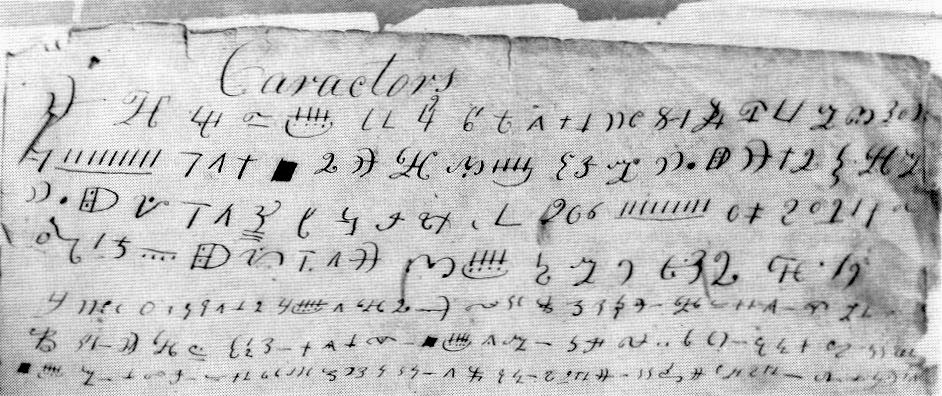



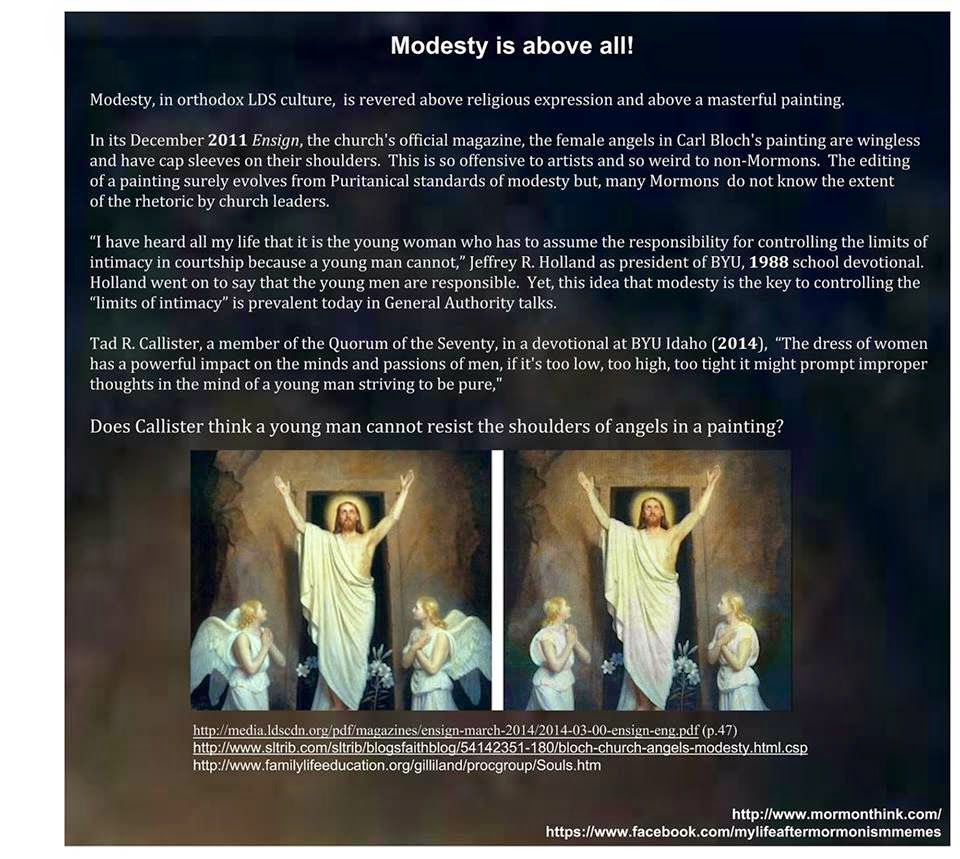
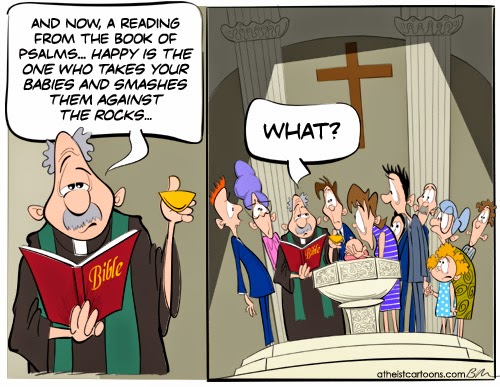
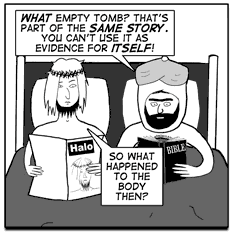



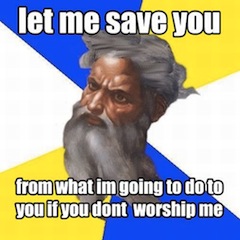
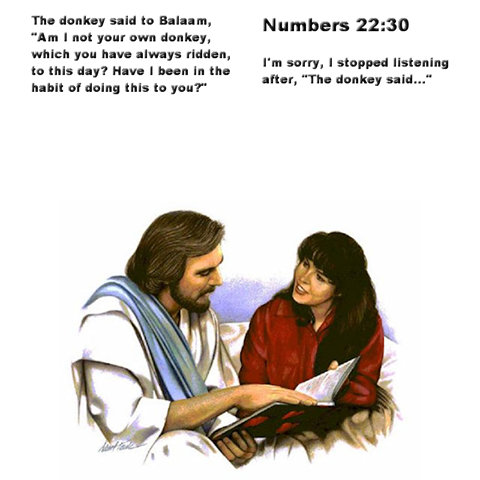

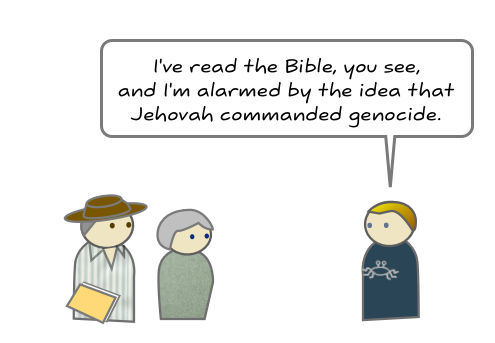

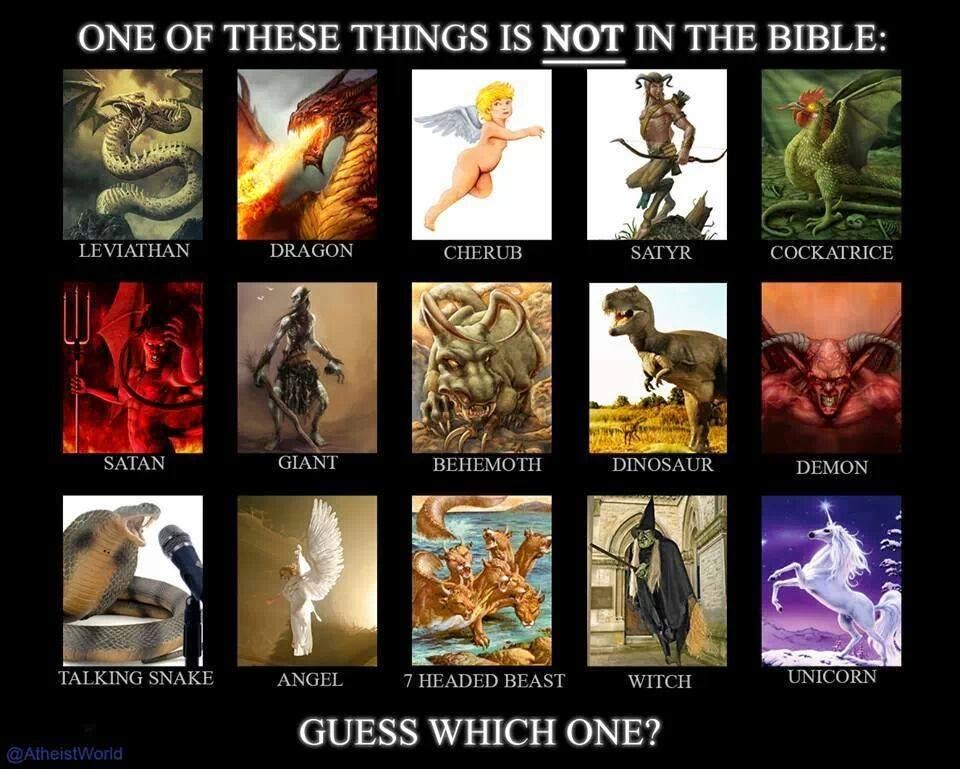







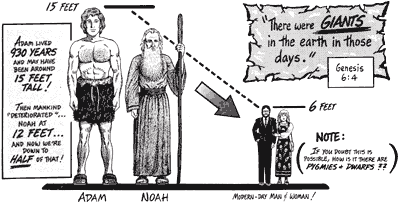
Recent Comments